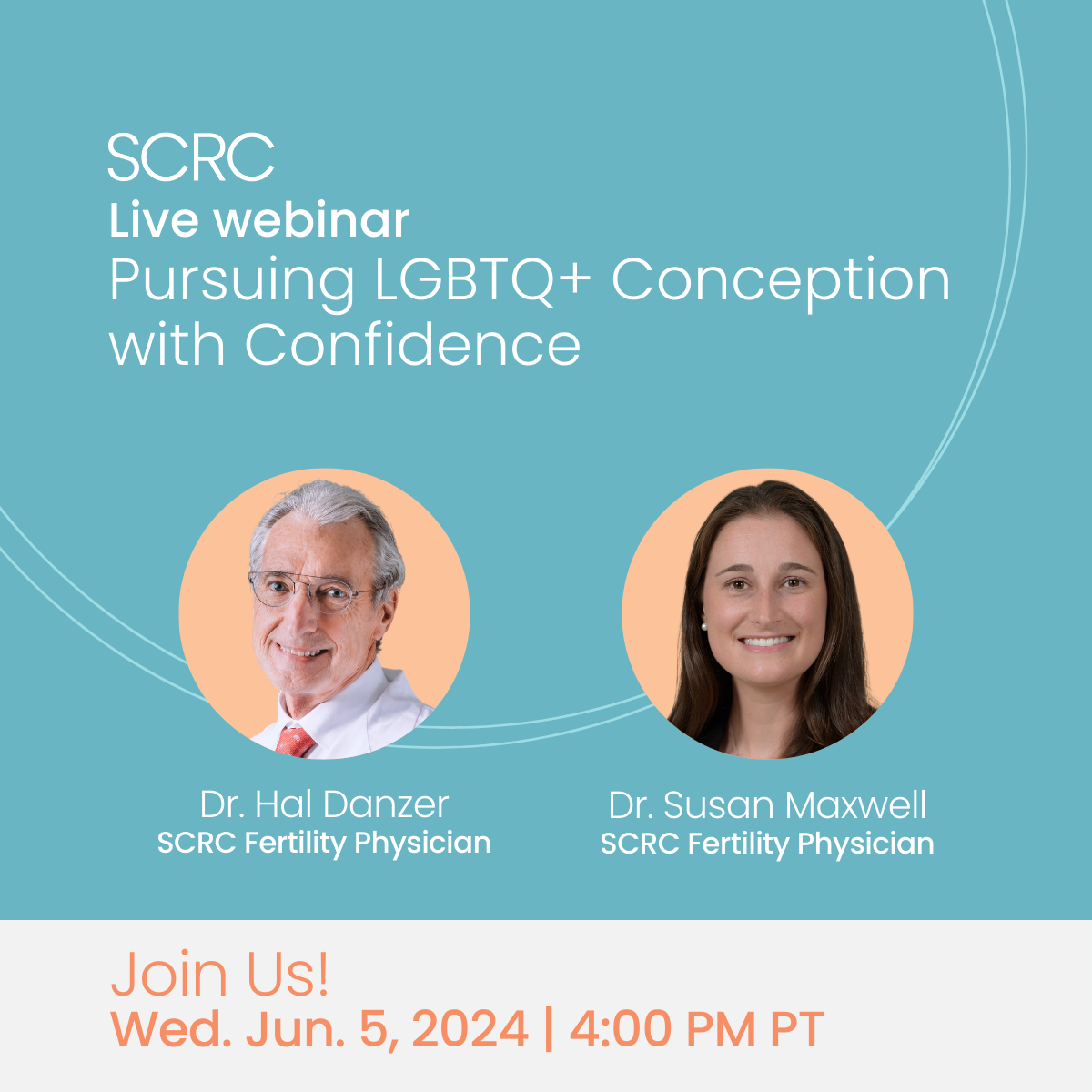Becoming a parent doesn’t begin when you’re introducing your bundle of joy to their new home. Nor does it begin with middle of the night feedings and diaper changes. Becoming a parent begins when you make the decision, as a couple, to grow your love and bring a new life into your family. With the advancement of technology and our legal system, gay couples are able to share a genetic connection with their children via IVF and gestational surrogacy.
First steps to parenthood
Now, it may not feel like it, but you’ve already taken the first steps to becoming a parent by learning about the IVF process and scheduling a consultation with one of our Reproductive Endocrinologists. It’s also important to know that in addition to IVF, you will need to work with a gestational surrogate on your path to parenthood. Gestational surrogacy is a complex process, which requires the guidance and coordination of an experienced surrogacy agency to ensure each stage of the journey goes smoothly and all legal requirements have been met.
If you haven’t had a chance to speak with one of our SCRC fertility specialists, schedule your consultation now.
There are hundreds of surrogacy and egg donation agencies in the United States, which might leave you asking, “how do I know which one is the best for us?” We’ve taken a bit of the guesswork out of your decision with our five tips to consider when choosing an agency and some questions to ask before you make your choice.
1) Experience working with the gay community
It’s relatively easy to tell if a surrogacy agency is LGBTQ+ friendly by browsing their website for photos of gay couples or even an LGBTQ+ section; however, their experience working with gay families isn’t always as readily obvious. The surrogacy process is relatively the same for all couples, but there are still nuanced differences that require a bit more care when it comes to the gay community.
- Is the agency educating you about your options for creating embryos and whose genetic material will be used to create them?
- Is the agency guiding you with suggestions on how you and your husband can bond, and even nest, during the many stages of your surrogacy journey?
2) Understanding of gay surrogacy laws
Gestational surrogacy is not regulated at the federal level, which means you’ll find surrogacy laws vary from state to state. If you live in a state that does not allow surrogacy, you still have the option of working with a surrogate who resides in a state with surrogacy-friendly laws. We also recommend considering working with a surrogate who is based in a state with the most progressive surrogacy and parenting laws permitting pre-birth orders with both fathers’ names on the birth certificate.
- Do they have surrogates located in LGBTQ+ and surrogacy friendly states?
- Has the agency helped you understand what pre-birth orders and second parent adoptions are and why they’re necessary?
- Do they have an established network of surrogacy attorneys to recommend you to?
3) Communication style
Your journey to parenthood will be filled with many exciting benchmarks that will require careful coordination. Your communication with the surrogacy agency you choose should not begin and end when you pay your agency fee. The agency you’ve selected should not only be updating you on doctor appointments and the health of your baby, but they should also be helping you foster a bond with your surrogate. While questions should always be welcomed, you should never feel you have to chase an agency for answers.
- Has this agency been excited about answering my questions and educating me even if I haven’t signed a retainer or made my first payment?
- Who will be my main point of contact at each step of the journey and what will that communication look like?
4) Professional network and recommendations
Many factors go into what distinguish good surrogacy and egg donation agencies from great agencies. One thing to consider is an agency’s established network of fertility specialists and industry professionals. There should be a documented history of cooperation, and the surrogacy agency should be able to recommend an IVF practice or a surrogacy attorney based on the specific needs of your journey.
- Have you worked with SCRC in previous surrogacy or egg donation cycles?
- Do you recommend all of your intended parents to the same IVF clinic?
- Does the agency have any letters of recommendation from IVF practices and reproductive endocrinologists?
5) Take your time
The road to fatherhood is extremely exciting, but there’s no rush. Becoming a parent will change your life in ways unimagined and surrogacy, together with egg donation, is a sizable financial commitment. Most agencies have teams of experienced intended parents, surrogates, and egg donors who at one point in time were in your shoes. They all understand your excitement and should help you come up with a reasonable timeline to meet your parenting dreams. And if nothing else, they will remind you to take your time!
About the writer
Joshua is an Intended Parent Match Manager at Giving Tree Surrogacy & Egg Donation.
“As a father, husband, and member of the LGBTQ+ community, there is something very special about being able to share my experience as an intended parent and helping gay couples find their footing in this sometimes overwhelming journey we call surrogacy.”
Giving Tree Surrogacy and Egg Donation is a full-service agency located in Southern California. Founded in 2015, and operating both internationally and domestically, we pride ourselves in offering a team-approach with concierge-style service, guiding intended parents with an unparalleled level of care and compassion. Many of our staff have been intended parents, surrogates, and egg donors, and are uniquely experienced in the field of third-party reproduction.
Are you ready to take the next step in parenthood? Schedule your consultation with Giving Tree Surrogacy & Egg Donation. If you still need more information, visit our Surrogacy for LGBT Families pages and let us help you on your journey to parenthood!




